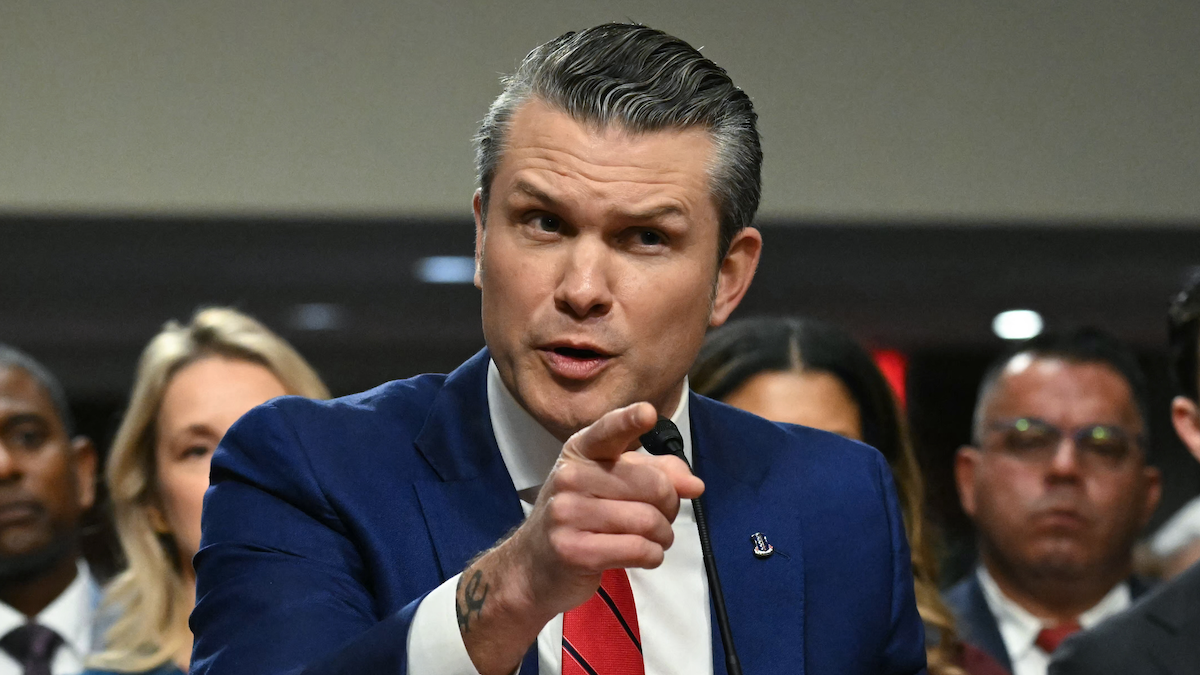Trump caused the stock market crash — Democrats must hold his feet to the fire
We’ve never before had a president so intent on simultaneously undoing our form of government and the infrastructure of our economic life.

President Trump’s tariffs have put the American economy into a tailspin.
Last week’s stock market crash wiped out trillions of dollars in American wealth, individual retirement accounts, and the value of countless businesses and corporations. The president’s obsession with ending free trade and globalization delivered what economist Paul Krugman characterized as “the biggest trade shock in history.” That shock quickly undermined consumer confidence, propelling the country toward a recession.
The unfolding economic catastrophe offers progressives a chance to recalibrate their failing messaging and show voters how Trump’s inconsistent strongman style has undone decades of progress. His tariff decision only underlines the fact that democratic institutions, the separation of powers and the rule of law have stood in Trump’s way — that is why he opposes them.
Freed from the constraints that a well-functioning democratic system would have imposed and the accountability it provides, the president was able to crow last Thursday that his plan was “going very well — The MARKETS are going to BOOM.” Two days later, he proclaimed: “THIS IS AN ECONOMIC REVOLUTION, AND WE WILL WIN.”
His advice to millions of Americans — “HANG TOUGH, it won't be easy, but the end result will be historic." Or, as the president explained on Sunday, “Sometimes you have to take medicine.”
The economic crisis comes on top of a growing political crisis, as the unelected but seemingly unstoppable Elon Musk and his Department of Government Efficiency decimate the federal government. We’ve never before had a president so intent on simultaneously undoing our form of government and the infrastructure of our economic life.
To counter his efforts, Democrats must pivot from their ceaseless platitudes about democracy, which could not carry Kamala Harris to victory last November. Instead, they must show that Trump’s attacks on democracy is one key reason why Americans will pay more for groceries, electronics, cars and just about everything else.
The closest equivalent to this unprecedented moment was the period of the Civil War. The political stakes were obvious; what was less apparent was how the war wreaked havoc on the economy — though that havoc was not felt equally throughout the country. As the consequences of the war registered in American life, President Lincoln worked not just to preserve the Union but also its republican form of government.
Fast-forward approximately 70 years to the economic devastation of the Great Depression. Shortly thereafter, the nation confronted the threat of fascism from overseas. People here and abroad learned a hard lesson: Economic anxiety and despair provide fertile territory for demagogues.
President Franklin Delano Roosevelt, like Lincoln, did not use the Depression or the threat of fascism as a weapon to undermine the American Constitution or for his own enrichment. Instead, he wanted to preserve the “American ideals of individual liberties ... (and see them) extended throughout the world.”
Moreover, as the Pew Research Center reports, he was bolstered by “Depression-era Americans’ faith in the country and its guiding institutions.”
Today, Trump’s anti-democratic agenda comes at a time when our faith in the country and its institutions are at historic lows. The president knows this. That’s why, even as he trashes the economy and democracy, he tells Americans that only he can fix the country’s problems.
The Atlantic’s Derek Thompson underlines the danger of Trump’s “I alone” and know-nothing style of government, highlighting the damage done by “an economic plan that attempts to revive the 19th-century protectionist U.S. economy.” What’s more, he recognizes that “The scariest thing about the Trump tariffs isn’t the numbers, but the underlying message. We’re all living inside the president’s head, and nobody knows anything.”
Building on last weekend’s “Hands Off” protests, progressives now need to drive home a single message: Trump alone is responsible for prices going up, workers losing their jobs, and our standard of living plummeting. Their message will pay dividends if they can convince people that those consequences flow directly from the undemocratic way the president governs.
As Nobel-laureate and economist Milton Friedman once observed, “The limitations on government concentration of economic power, adherence to the rule of law, respect for property rights and enforcement of contracts, was central to the prosperity of the free world.”
Friedman understood that countries with democratic institutions and a commitment to respecting the law create predictability for investors, support equal opportunity for the many, and encourage the innovation necessary for a society to thrive. Although these institutions do not in themselves guarantee prosperity, they are better at meeting the economic needs of ordinary people than any other system of government.
Sadly, Trump is offering all of us an opportunity to learn that lesson the hard way.
Austin Sarat is the William Nelson Cromwell Professor of Jurisprudence and Political Science at Amherst College.











































































